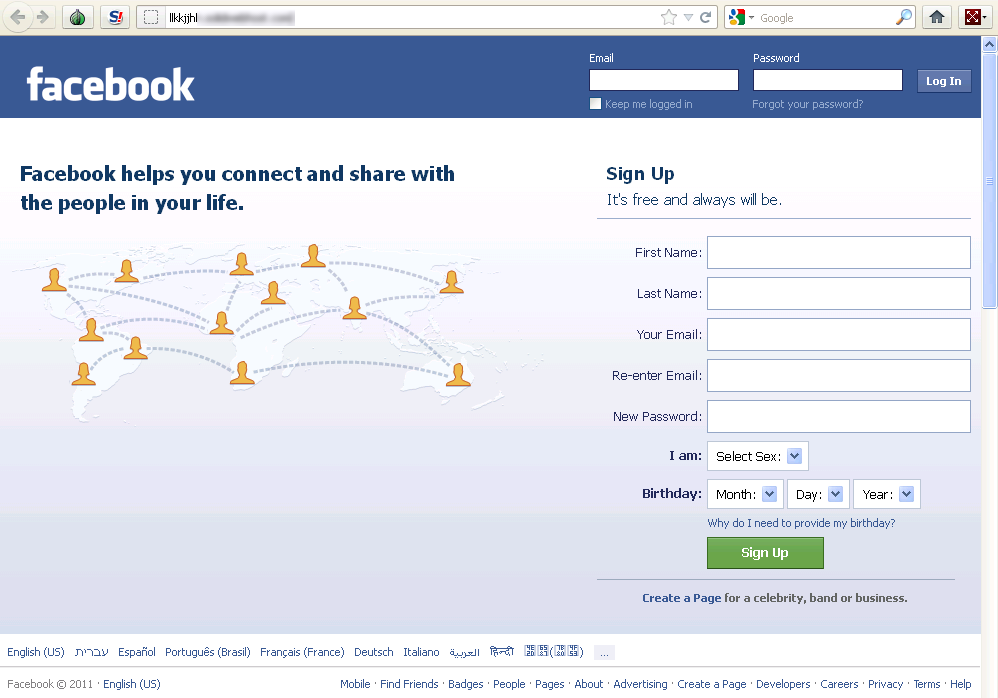
If you can relate to this experience, then you can probably relate to the experience of actually being hacked as well. Quite frankly, it’s embarrassing, invasive and extremely annoying, since you have to run all sorts of computer checks/clean-ups and change all your passwords as well.
Hacking of this kind can also be dangerous, if you click the blue link for any reason, then you’re potentially delivering yourself into a world of virtual hurt.
Now, with everyone and their tech-retarded grannies signing up to Facebook, hacking has become far more prevalent, a way of robbing people blind without even looking them in the eye while you do it.
This week, BBC News reported that a New Yorker named Eric Crocker, who used the alias Phastman to commit his virtual crimes, has admitted to hijacking more than 77,000 Facebook accounts as part of a vast network of money making schemes.
The court heard how he and his cohorts took over the accounts of unsuspecting Facebook users and used them to send junk emails to other accounts, thus hacking them as well.
Using the Facebook Spreader tool, Crocker received $300 (£191) for every 10,000 computers he infiltrated.
Mr. Crocker was one of 70 people arrested across 20 countries, thanks to evidence gathered by the FBI’s (very coolly-named) Operation Shrouded Horizon, an initiative aimed at the prevention of virtual crime.
Crocker and the other suspects were members of an invitation only, password-protected forum called Darkode, which boasted between 250-300 members at any given time.
Hackers used the site to buy, sell or swap malware, stolen personal details, credit card information, hacked server credentials and other pieces of data and software commonly used in worldwide cyber crime.

In order to join the site, unethical hackers like Mr. Crocker had to be sponsored by an existing member, they were then heavily vetted to ensure that they were who they said they were. Finally, prospective members had to submit a resume describing their previous criminal activities, which also detailed their skills and suggested ways in which they could contribute to the illegal activities planned by the site. If selected as members, the FBI reports, these hackers would then aid other cyber criminals in their illicit endeavours.
FBI operatives, as well as their counterparts in 20 other countries, infiltrated the site “at the highest levelsâ€, gathering enough information to aid in the arrest of Mr. Crocker and his affiliates.
Crocker eventually pleaded guilty to the charges of violating anti-spam laws and the abuse of Internet connections. He will be sentenced in November, when he will likely be facing up to three years in prison, a $250,000 (£160,000) fine, or both.
Although these arrests are proof that the governments of the world are wising up to cyber crime, please bear in mind that these people, and others like them, are still out there, skulking in the shadows of cyberspace and plotting their next attack. Be vigilant at ALL times...
No comments:
Post a Comment